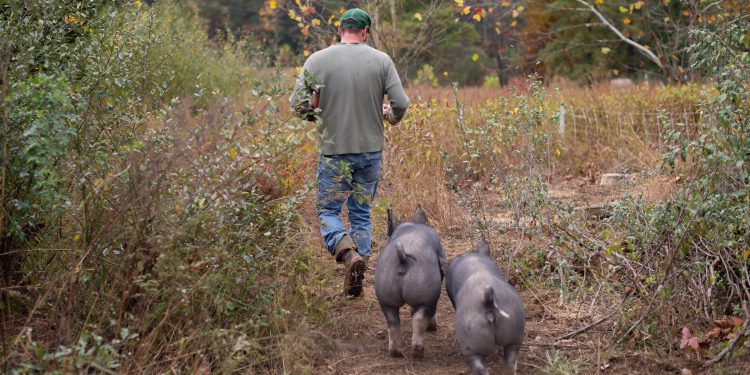The go-to food culprit for climate change is meat – we’ll hear it increasingly in sound bites from politicians during COP26 in Glasgow.
This overlooks meat’s intense nutritional efficiency, vital in many cultures, as well as the difficulty of encouraging Western consumers to make new choices.
One billion people in poverty, mostly pastoralists in South Asia and sub-Saharan Africa, depend on livestock for their food and livelihood.
Globally, livestock is responsible for 25 per cent of protein intake and 15 per cent of dietary energy.
The world’s largest meat producers and processors are among a group collaborating on research to help pork producers nudge consumers into more environmentally sustainable meat choices.
“Pork creates 30 kilograms of CO2 equivalent per 100 grams vs 50 kilograms for beef”
Where consumers go, business follows, so by improving the market for sustainable meat and demonstrating its value to business, meat producers will be motivated to create fairer and more sustainable supply chains.
ADM, Bayer, Bühler, Compass Group, CP Group, Corteva, DSM, Evonik, IKEA, Maple Leaf, Niman Ranch, Protix, Rabobank and Tyson are behind the project, called the Responsible Meat Initiative (ReMI) which is led by the World Business Council for Sustainable Development (WBCSD).
Their starting place is pork and its lower carbon impact compared to beef – 30 kilograms of CO2 equivalent per 100 grams vs 50 kilograms for beef.
The research found that climate friendly choices resonate more with people when the human impact is emphasised. It also found many people will pay a premium for sustainable food if is marketed well and easy to access.
It found young people, Millennials and Generation Z, concerned about environmental and social justice and animal welfare, are already reducing their meat consumption. They want good quality, affordable products with labelling that makes the high protein of pork clear.
Meat eaters who are on the fence about making new choices want to do the right thing in the world, and provide their families with healthy protein – so labelling on products needs to make this clear.
“Promote sustainable meat’s benefit to local economies”
Meat eaters who deny the social or environmental problems caused by conventional meat production can be influenced when they know better choices support the local economy, and are more healthy for their own family.
Advice emerging from the research includes restaurants offering only eco-positive choices. It says healthy and sustainable ingredients should be the default option. Sales should be accompanied by messaging on posters and the menu explaining that only high quality, sustainably grown meat is being offered.
The research also recommends lowering the risk for customers to try new sustainable meat products, via loyalty programmes and price promotions.
From next year, the Responsible Meat Initiative will provide benchmarking as well, to help motivate businesses switching toward more responsible meat production.























